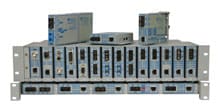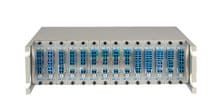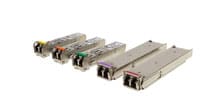- Products
- PoE Media Converters and Switches
- Ethernet & PoE Switches Product Selector
- Multi-Gigabit Ethernet and PoE Switches
- PoE PSE Commercial Switches
- PoE PSE Industrial Fiber Switches
- PoE Industrial Copper Extenders
- PoE Powered Media Converters
- PoE PSE Media Converters
- PoE Extenders & Injectors Product Selector
- Pluggable Transceivers Product Selector
- Product Lines
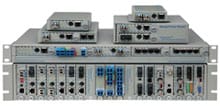
- iConverter Managed Multi-service Platform
- Copper to Fiber Media Converters
- Ethernet Media Converters
- 10 Gigabit Copper-to-Fiber
- 10/100/1000 Copper to 10 Gigabit Fiber
- 10/100/1000 Copper-to-Fiber with Integrated Management
- 10/100/1000 Industrial Copper-to-Fiber with Integrated Management
- 10/100/1000 Copper-to-Fiber with VLAN
- 10/100/1000 Dual Media Converter with VLAN
- Gigabit Copper-to-Fiber
- 10/100 Copper-to-Fiber with Integrated Management
- 10/100 Industrial Copper-to-Fiber with Integrated Management
- 10/100 Copper-to-Fiber with VLAN
- 10/100 Copper-to-Fiber
- Fast Ethernet Copper-to-Fiber
- Fast Ethernet Redundant Links
- 10Mbps Copper-to-Fiber
- 10Mbps Copper to Coax
- TDM Media Converters
- Serial Media Converters
- Ethernet Media Converters
- Fiber to Fiber Media Converters
- 10 Gigabit Fiber-to-Fiber Converter and Transponder
- 10 Gigabit Industrial Converter and Transponder
- SFP-to-SFP Fiber Converter and Transponder
- SFP-to-SFP Industrial Fiber Converter and Transponder
- Gigabit Fiber to-Fiber with 3 Rs
- 100/1000 Fiber-to-Fiber with 3 Rs
- Gigabit Fiber-to-Fiber
- Fast Ethernet Fiber-to-Fiber with 3 Rs
- Fast Ethernet Fiber-to-Fiber
- OC-3/STM-1 Fiber-to-Fiber
- OC-12/STM-4 Fiber-to-Fiber
- Carrier Ethernet Network Interface Devices
- CE 2.0 - 10G Demarcation NID
- CE 2.0 - 10G Demarcation and Aggregation NID
- CE 2.0 - 10/100/1000 Mult-port NID
- CE 2.0 - 10/100/1000 Mult-port NID with PoE
- CE 2.0 - 10/100/1000 8-Port NID
- SFP NID - Gigabit SFP NID
- microNID - 100/1000 compact NID
- CE 1.0 Service OAM - 10/100/1000 NID
- CE 1.0 Link OAM - 10/100/1000 Copper-to-Fiber NID
- CE 1.0 Link OAM - 10/100 Copper-to-Fiber NID
- CE 1.0 Link OAM - Gigabit Fiber-to-Fiber NID
- CE 1.0 Link OAM - Fast Ethernet Fiber-to-Fiber NID
- CWDM Multiplexers
- T1/E1 Multiplexers
- Ethernet Switch Modules
- Management System
- Chassis Options

- 1-Module Industrial Chassis
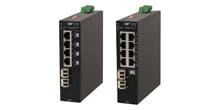
- RuggedNet Industrial Switches and Extenders
- Industrial PoE PSE Fiber Switches
- Multi-Gigabit Managed Industrial PoE+/BT Switches
- Multi-Gigabit Unmanaged Industrial PoE+/BT Switches
- 10G Managed 802.3bt PoE Switches
- 10G Unmanaged 802.3bt PoE Switches
- 10G Managed PoE+ Switches
- 10G Unmanaged PoE+ Switches
- 1G Managed PoE+ Switches
- 1G Unmanaged PoE+ Switches
- 1G Unmanaged 802.3bt PoE Switches
- 1G Managed 802.3bt PoE Switches
- Industrial Ethernet Switches
- Industrial PoE Copper Extenders
- Industrial Power Supplies

- OmniConverter Media Converter, Switches and Extenders
- PoE PSE Media Converters
- 10G Multi-Gigabit / Multi-Rate PoE Media Converter
- 10G Multi-Gigabit / Multi-Rate Media Converter
- 10/100 Multi-port PoE+ Media Converter
- 10/100 PoE+ Media Converter
- 10/100/1000 Multi-Port PoE+ Media Converter
- Industrial 10/100/1000 Multi-Port PoE+ Media Converter
- 10/100/1000 PoE+ Media Converter
- 10/100/1000 PoE++ 60W-100W Media Converter
- Industrial 10/100 Multi-port PoE+ Media Converter
- 1U Rack-Mount Shelf
- PoE PSE Compact Switches
- Multi-Gigabit Managed PoE+/BT Switches
- Multi-Gigabit Unmanaged PoE+/BT Switches
- 10G Managed 802.3bt PoE Switches
- 10G Unmanaged 802.3bt PoE Switches
- 10G Managed PoE+ Switches
- 10G Unmanaged PoE+ Switches
- 1G Managed PoE+ Switches
- 1G Unmanaged PoE+ Switches
- 1G Managed 802.3bt PoE Switches
- 1G Unmanaged 802.3bt PoE Switches
- Ethernet Switches
- PoE Copper Extenders
- Single Pair Ethernet Converters
- PoE Injectors
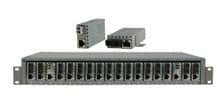
- miConverter Unmanaged Miniature Media Converters
- 10/100/1000 Copper-to-Fiber
- Industrial 10/100/1000 Copper-to-Fiber
- 10/100/1000 Ultra-Compact Copper-to-Fiber
- Gigabit Copper-to-Fiber
- 10/100/1000 Copper-to-Fiber PoE Powered
- 10/100 Copper-to-Fiber
- 10/100 Ultra-Compact Copper-to-Fiber
- 10/100 Copper-to-Fiber PoE Powered
- 18-Module Chassis
- Industrial 10/100 Copper-to-Fiber PoE Powered
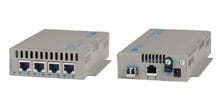
- FlexSwitch Compact Switches
- Solutions
- Company
- Support
- How to Buy
Choosing the Best Ethernet Switch in 2024
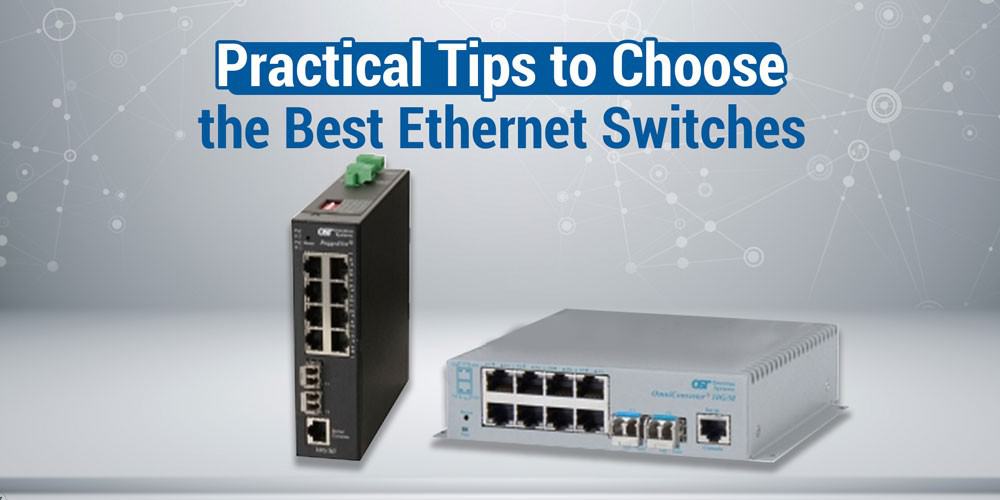
Is it hard to find the ideal Ethernet switch that fully meets the application requirements that you are searching for? We are here to help. As you follow the steps in this blog, you will be able to select the most feature-rich Ethernet switch. In the end, you will be able to find a cost-effective Ethernet switch that is best suited for your application needs.
What is an Ethernet Switch?
Managed or Unmanaged Ethernet Switch
Unmanaged Ethernet switches are known as plug-and-play with auto-negotiation data rates and duplex modes. The manufacturer hides the configuration of unmanaged switches, so it doesn't accept users' input settings. Therefore, you can use unmanaged Ethernet switches with no learning curve in your network or application. On the other hand, a managed Ethernet switch can be managed via a Web interface, Telnet, SSH, SNMP, or serial console interface. IP-based web management can be accessed through any of the access or downlink ports or uplink ports, providing intuitive and easy-to-navigate menu options for all the features. If you want to have control and retrieve status of all the ports and various functional aspects of the switch, a managed Ethernet switch is a perfect option for you.
1 Gigabit or 10 Gigabit Ethernet Switch
When it comes to choosing between a 1 Gigabit or 10 Gigabit Ethernet switch, it is a matter of speed and the time that you want to transmit the data. Choose a switch based on the bandwidth consumption of your network. 1 Gigabit switches are great for security and access control applications that only require up to 1G of data. On the other hand, 10 Gigabit Ethernet switches provide a high-speed data transfer aggregating bandwidth faster than the 1G switches. Overall, 10 Gigabit Ethernet switches are the wiser choice to future-proof your network for growing bandwidth demands.
Industrial or Commercial Ethernet Switch
When it comes to comparing industrial Ethernet switches and commercial Ethernet switches, the most notable difference is their operating temperature ranges, and the Industrial switches have additional functions such as alarm relay contacts and digital input/output ports. Commercial Ethernet switches have operating temperature ranges of 0ºC to 50ºC, and a few manufacturers offer wide operating temperature -40ºC to 60ºC, helping customers who don’t require the industrial operating temperature, but still above the commercial operating temperature range. Industrial Ethernet switches have an operating temperature range of -40ºC to 75ºC.
Ethernet Switch ports
Ethernet switches support copper and fiber SFP transceivers with speeds of 10M, 100M, 1G, and 10 Gbps. They have multiple 10/100/1000 copper user/access/downlink ports and 1/10G SFP/SFP+ transceiver (small form-factor pluggable transceiver uplink ports. To prevent port flooding, these switches support Directed Switch Mode (explained below).
-
Uplink ports
The uplink ports are used to connect the rest of the network to the Ethernet switch. If you want to connect your Ethernet switch to a router, you can use these uplink ports to connect devices, or if there are multiple switches in the local area network (LAN). With the help of these uplink ports, the distance can also extend up to 140 kilometers.
-
User/Access/Downlink Ethernet port
User/Access/Downlink Ethernet ports are used to connect devices like computers, laptops, and printers to the Ethernet switch. Each port is dedicated to only one device.
Unique features of Omnitron’s compact Ethernet switches
Omnitron compact Ethernet switches are standard layer 2 Ethernet switches that forward frames to any port based on their MAC address.
Omnitron compact Ethernet switches support Directed Switch mode, which directs multicast traffic only to the appropriate uplink port, preventing it from flooding other network ports with unnecessary data. This feature is most useful when connecting multiple cameras to the switch to prevent data flooding.
Omnitron compact Ethernet switches support daisy chain configurations and redundant uplinks for critical applications that require protection and sub 50ms restoration in the event one of the redundant uplink fails.
Omnitron compact Ethernet switches are available with small form-factor pluggable (SFP) transceiver receptacle ports or with fixed ST, SC, and LC fiber connectors. The SFP ports support 10/100/1000BASE-T, 1000BASE-T, and 10GBASE-T copper transceivers. Compact Ethernet switches also support 1G and 10G multimode or single-mode fiber, dual or single-fiber, and standard or CWDM/DWDM wavelengths.
Omnitron compact Ethernet switches can be wall or rack-mounted using a wall mount bracket and shelf or DIN-rail mounted. Models are available with dual DC input power for power redundancy and AC to DC power inputs.
-
Omnitron 1/10G managed Ethernet switch
Omnitron compact Ethernet switches can be managed via Web, Telnet, SSH, SNMPv1/v2c/v3 and serial interfaces, the switches can be managed via Omnitron’s NetOutlook® SNMP GUI management software, or third-party SNMP software.
-
Omnitron 1G managed and unmanaged Ethernet switch
Omnitron compact Ethernet switches—G/M managed gigabit Ethernet switch and G/Sx unmanaged gigabit Ethernet switch—both feature fiber or copper uplink ports and four or eight 10/100/1000 RJ-45 copper user ports. The OmniConverter G/M and G/Sx compact Ethernet switches cab be used to extend network distances via the fiber uplink ports,

-
Omnitron 10G managed and unmanaged Ethernet switch
Omnitron compact Ethernet switches—10G/M managed Ethernet switch and 10G/Sx unmanaged Ethernet switch—both feature two 1/10G uplink ports and four or eight 10/100/1000 RJ-45 copper user ports. The OmniConverter 10G/M and 10G/Sx compact Ethernet switch enable network distance extension with the fiber uplink port.
-
Omnitron Industrial 10G managed and unmanaged Ethernet switch
Omnitron RuggedNet compact Ethernet switches—10G/Si unmanaged industrial Ethernet switch and 10G/Mi managed industrial Ethernet switch—both feature two 1/10G uplink ports and four or eight 10/100/1000 RJ-45 ports. The RuggedNet 10G/Si and 10G/Mi enables industrial network distance extension with fiber cabling.

-
Omnitron Industrial 1G managed and unmanaged Ethernet switch
Omnitron RuggedNet compact Ethernet switches—G/Si unmanaged industrial gigabit Ethernet switch and G/Mi managed Industrial gigabit Ethernet switch—both feature fiber or copper uplink ports and four or eight 10/100/1000 RJ-45 copper user ports. The RuggedNet G/Si and G/Mi enables industrial network distance extension with fiber cabling.
| Managed/ Unmanaged Ethernet Switch | Bandwidth | Commercial /Industrial | Ports |
|---|---|---|---|
|
Managed |
10G |
Commercial |
Eight or four 10/100/1000 copper user ports Two 10G SFP/SFP+ transceiver uplink ports |
|
Managed |
1G |
Commercial |
Eight or four 10/100/1000 RJ-45 copper user ports two 1/10G uplink ports. |
|
Unmanaged |
10G |
Commercial |
Eight or four 10/100/1000 RJ-45 copper user ports Two 10G SFP/SFP+ transceiver uplink ports |
|
Unmanaged |
1G |
Commercial |
Eight or four 10/100/1000 copper user ports Two 10/100/1000 copper or Gigabit fiber uplink ports. |
|
Managed |
10G |
Industrial |
Eight or four10/100/1000 copper user ports Two 1/10G SFP/SFP+ transceiver uplink ports |
|
Managed |
1G |
Industrial |
Eight or four 10/100/1000 copper user ports Two 10/100/1000 copper or Gigabit fiber uplink ports. |
|
Unmanaged |
10G |
Industrial |
Eight or four 10/100/1000 copper ports Two 1/10G SFP/SFP+ transceiver uplink ports Unmanaged Industrial 4 and 8 Port Ethernet Switch 10 Gigabit |
|
Unmanaged |
1G |
Industrial |
Eight or four 10/100/1000 copper user ports Two 10/100/1000 copper or Gigabit fiber uplink ports. |
Conclusion
You have 8 options above, and each one leads you to the product’s features and technical specifications. If you are still unsure of which Ethernet switch is your best choice, contact Omnitron Systems’ technicians to schedule a free network design session. We are available 24 hours a day, 7 days a week, and 365 days a year to answer your questions.

